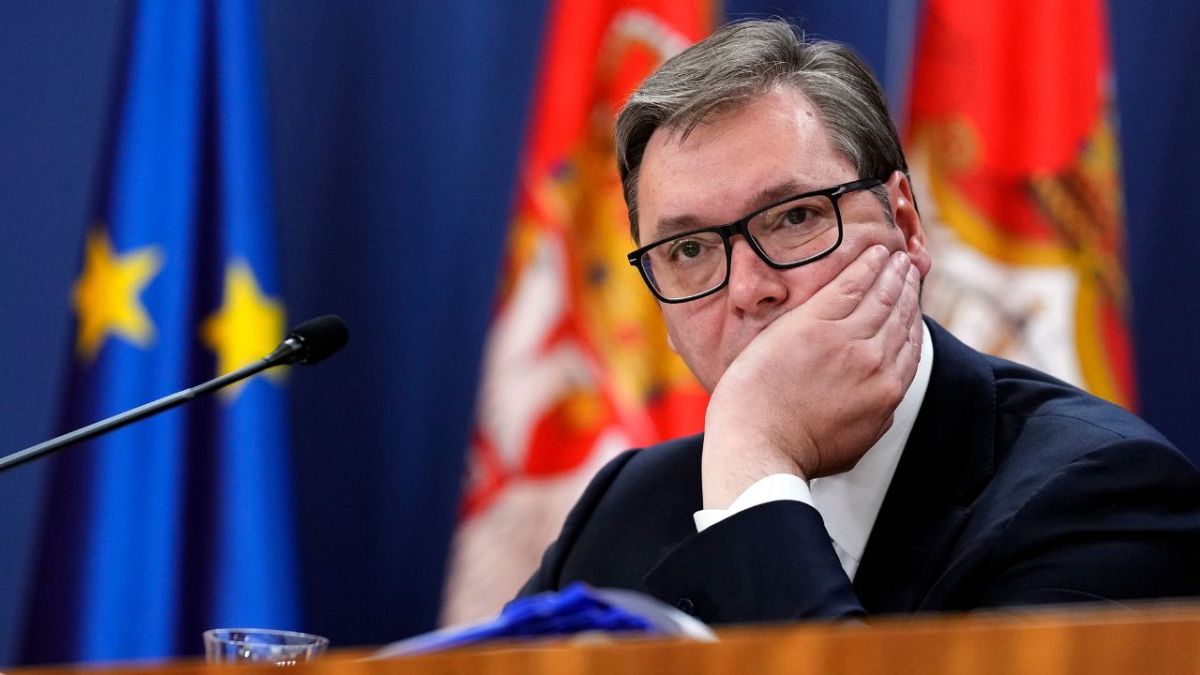Croatian authorities said it was "unacceptable" that they had not been formally notified of the Serbian president's private trip.
Tensions have risen between Croatia and Serbia after Serbian president Aleksandar Vučić was prevented from visiting a World War II memorial.
Vučić had planned a private visit to the site of the former Nazi concentration camp at Jasenovac, near the Croatian border with Bosnia-Herzegovina.
But authorities in Zagreb said it was "unacceptable" that they had learned of his visit through "unofficial channels" and had not been formally notified.
"We would like to stress that in the planning of any visit by foreign officials the time, nature and programme of the visit should be subject to official communication and agreement by both sides,” Croatian foreign minister Gordan Grlić-Radman told reporters.
"This was not a trip to the seaside, the president of a country is a protected individual," he added.
Croatia's decision to block Vučić's visit sparked outrage in Serbia, with officials describing the block as "scandalous".
Tens of thousands of Croatia’s Serbs, Jews and Roma were killed by pro-Nazi authorities at the Jasenovac concentration camp, sometimes referred to as the "Croatian Auschwitz".
Interior minister Aleksandar Vulin has stated that all Croatian officials will now have to formally announce any whenever they visit or pass through Serbian territory.
Vulin has also threatened that Croatian diplomats would be placed under a "special regime of control".
“This was an anti-European and anti-civilisation decision and brutal violation of the freedom of movement,” Serbian prime minister Ana Branabic told national media.
“I don’t know what our relations will look like in the future ... This is sending a frightening message.”
Relations between Serbia and Croatia have remained tense since the breakup of the former Yugoslavia and the war that erupted when Croatia's Serb minority rebelled against the country’s independence.
More than 20,000 people were killed in the conflict between 1991 and 1995.
Serbia’s populist authorities have insisted that Croatia’s government has not done enough to acknowledge its past during World War II. Zagreb meanwhile has accused Belgrade of refusing to deal with its own role in the 1990s war.
"We see this as a provocation," Grlić-Radman said on Sunday. "Such a visit is not sincere, it is not about honouring the victims."
Vučić, a former nationalist who supported the Serb rebellion in Croatia in the 1990s, has also condemned the incident.
“You [Croatia] just do your job," he wrote in an Instagram post on Sunday. "The Serbian people will live and never forget,” he said.
